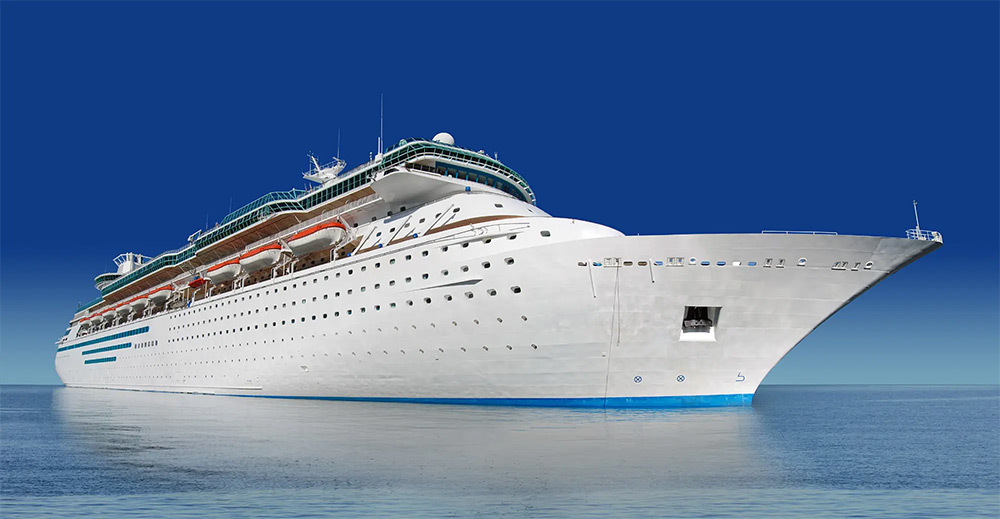Choosing Between Aluminum and Stainless Steel Propellers: A Comprehensive Guide for Boat Enthusiasts
Release Time:
Jun 10,2025
Choosing Between Aluminum and Stainless Steel Propellers: What You Need to Know Table of Contents 1. Introduction 2. Understanding Propeller Materials 2.1 Aluminum Propellers 2.2 Stainless Steel Propellers 3. Performance Comparison of Aluminum vs. Stainless Steel Propellers 3.1 Speed and Efficiency 3.2 Acc
Choosing Between Aluminum and Stainless Steel Propellers: What You Need to Know
Table of Contents
- 1. Introduction
- 2. Understanding Propeller Materials
- 3. Performance Comparison of Aluminum vs. Stainless Steel Propellers
- 4. Durability and Maintenance
- 5. Cost Analysis: Aluminum vs. Stainless Steel
- 6. Which Propeller Is Right for You?
- 7. Frequently Asked Questions
- 8. Conclusion
1. Introduction
When it comes to enhancing the performance of your boat, choosing the right propeller is paramount. Two of the most popular materials for propellers are **aluminum** and **stainless steel**. Each material offers distinct advantages and potential drawbacks depending on your boating style, budget, and maintenance preferences. In this guide, we will delve into the critical aspects of aluminum and stainless steel propellers to aid you in making an informed decision.
2. Understanding Propeller Materials
2.1 Aluminum Propellers
Aluminum propellers are well-known for their lightweight nature and affordability. They are an excellent option for smaller boats and those who engage in casual boating activities. Despite being less durable than stainless steel, aluminum propellers have their unique benefits, such as:
- **Cost-Effectiveness**: Generally, aluminum propellers are cheaper, making them ideal for budget-conscious boaters.
- **Ease of Replacement**: If damaged, aluminum propellers can be easily replaced without a significant financial burden.
- **Performance for Smaller Vessels**: These propellers often deliver sufficient performance for smaller boats and engines.
2.2 Stainless Steel Propellers
Stainless steel propellers are synonymous with durability and high performance. They are designed to withstand the rigors of harsh marine environments. Key features include:
- **Enhanced Strength and Durability**: Stainless steel propellers can handle high torque and resist bending.
- **Improved Performance**: These propellers typically provide better speed, acceleration, and fuel efficiency.
- **Longer Lifespan**: With proper care, stainless steel propellers can outlast their aluminum counterparts, making them a worthwhile investment for frequent boaters.
3. Performance Comparison of Aluminum vs. Stainless Steel Propellers
3.1 Speed and Efficiency
When comparing the speed and efficiency of aluminum and stainless steel propellers, stainless steel typically takes the lead. The greater rigidity of stainless steel allows for more efficient propulsion, resulting in higher top speeds. Aluminum propellers, while capable of decent performance, may not match the efficiency of their stainless counterparts, particularly in high-speed applications.
3.2 Acceleration and Thrust
Acceleration refers to how quickly a boat can reach its top speed. Stainless steel propellers generally offer superior acceleration due to their ability to maintain a consistent blade shape under load. This reliability translates to better thrust, making stainless steel a preferred choice for speed enthusiasts and performance-driven boaters. Aluminum propellers, while suitable for casual boating, may not provide the same level of thrust under heavy loads.
4. Durability and Maintenance
4.1 Corrosion Resistance
Corrosion is a significant concern for boat propellers, particularly in saltwater environments. Stainless steel propellers excel in this regard, as their material composition provides a robust defense against corrosion. Aluminum propellers, while they can be treated to resist corrosion, are generally more susceptible to damage from saltwater, chlorine, and other corrosive elements.
4.2 Maintenance Requirements
Both aluminum and stainless steel propellers require maintenance, but the extent varies. Aluminum propellers may need regular inspections for nicks and dents, whereas stainless steel propellers may require polishing to maintain their luster and performance. In terms of long-term maintenance, stainless steel tends to be lower maintenance due to its resilience against wear and tear.
5. Cost Analysis: Aluminum vs. Stainless Steel
Cost is often a driving factor in choosing between aluminum and stainless steel propellers. While aluminum propellers are significantly less expensive upfront, the long-term costs associated with durability and performance should also be considered. Stainless steel propellers may have a higher initial investment, but their longer lifespan and better performance can lead to cost savings over time, particularly for avid boaters.
6. Which Propeller Is Right for You?
6.1 Boating Conditions
Evaluating your typical boating conditions is crucial in making the right choice. For casual boaters in calm waters and those with smaller vessels, aluminum propellers are often sufficient. Conversely, if you frequently navigate rough waters or require high performance, stainless steel is likely the better option.
6.2 Personal Preferences
Personal preferences, such as how often you use your boat and your willingness to invest in maintenance, will also influence your decision. If you are a dedicated boater who values performance, the benefits of stainless steel will likely appeal to you, while occasional boaters may find aluminum a more practical choice.
7. Frequently Asked Questions
What is the main difference between aluminum and stainless steel propellers?
The main difference lies in their composition, performance, durability, and cost. Stainless steel propellers offer better performance and longevity, while aluminum propellers are more affordable and suitable for casual use.
Can I use an aluminum propeller on a high-performance boat?
While it is possible, aluminum propellers may not provide the necessary performance and efficiency that high-performance boats require. Stainless steel is generally recommended for such applications.
How do I maintain my stainless steel propeller?
Regularly inspect your stainless steel propeller for signs of wear or damage, and polish it to maintain its finish and performance. Store it properly to prevent corrosion.
Are aluminum propellers suitable for saltwater use?
Aluminum propellers can be used in saltwater, but they are more susceptible to corrosion. If used in saltwater, it is essential to maintain them properly to prolong their lifespan.
How do I choose the right pitch for my propeller?
Choosing the right pitch depends on your boat’s specifications, engine performance, and intended use. Consult your owner’s manual or a marine professional for tailored advice.
8. Conclusion
Selecting between aluminum and stainless steel propellers is a crucial decision that can significantly impact your boating experience. Each material has its own pros and cons, with aluminum offering affordability and ease of replacement, while stainless steel delivers exceptional performance and durability. By understanding the differences in performance, durability, cost, and your specific boating needs, you can confidently choose the propeller that best suits your vessel. Whether you prioritize speed, efficiency, or resilience, making an informed decision will enhance your time on the water and ensure a smoother, more enjoyable boating experience.
Keywords:
More information



